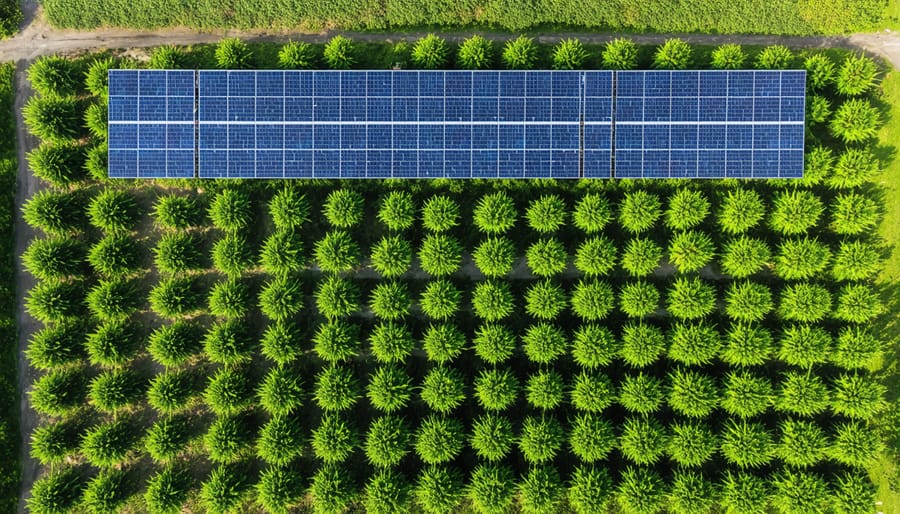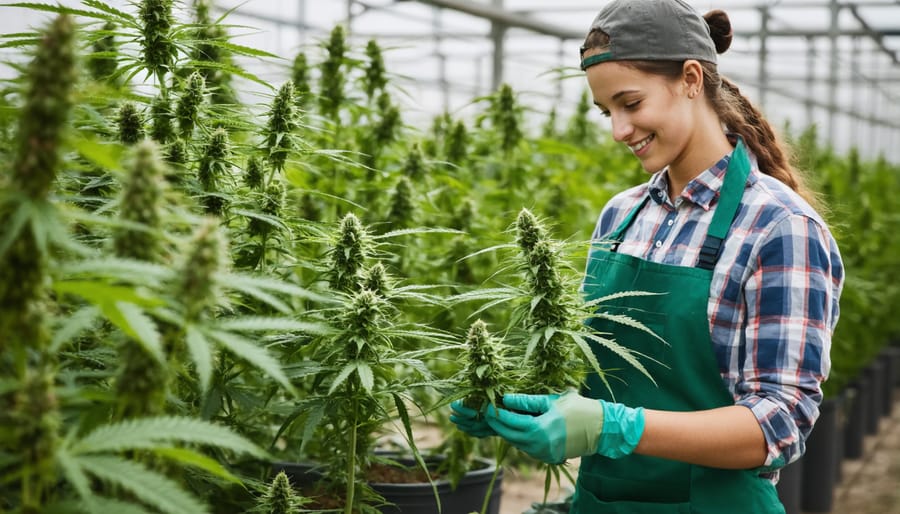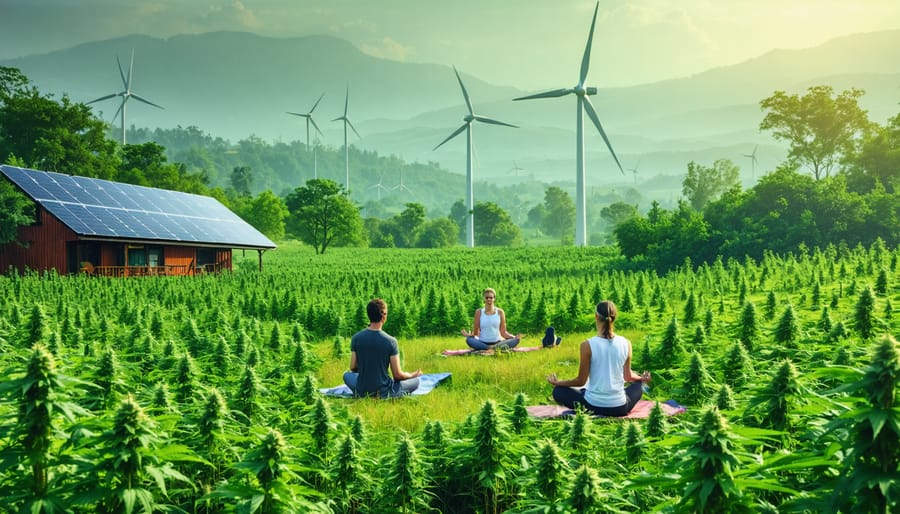At the intersection of wellness tourism and environmental stewardship, sustainable cannabis travel practices are revolutionizing the tourism industry. From educational hemp farm tours featuring CBDNorth Canadian CBD oil to eco-conscious wellness retreats, a new paradigm of responsible tourism is emerging. This transformative approach combines the therapeutic benefits of CBD with environmental conservation, creating meaningful experiences that benefit both travelers and local communities.
Indigenous knowledge and modern sustainability practices merge to create immersive experiences that protect natural resources while fostering economic growth in rural communities. Through carefully designed programs that prioritize zero-waste operations, renewable energy usage, and local workforce development, CBD tourism initiatives are setting new standards for responsible travel. These innovative ventures not only satisfy growing consumer demand for wellness-focused experiences but also demonstrate how tourism can serve as a catalyst for positive environmental and social change.
Join us as we explore how forward-thinking entrepreneurs and communities are crafting sustainable CBD tourism experiences that respect traditional knowledge, preserve natural environments, and create lasting positive impacts for future generations.
The Rise of Wellness-Focused Sustainable Tourism
CBD Tourism: Where Wellness Meets Environmental Responsibility
The convergence of wellness tourism and environmental stewardship has given rise to a new paradigm in sustainable and regenerative tourism. CBD tourism initiatives are leading this transformation by creating immersive experiences that prioritize both personal well-being and ecological responsibility. Visitors can explore hemp farms that utilize regenerative agriculture practices, participate in CBD-infused spa treatments using locally sourced ingredients, and learn about traditional healing practices while supporting conservation efforts.
These initiatives often feature solar-powered facilities, water recycling systems, and zero-waste policies. Many destinations have partnered with local communities to develop programs that preserve indigenous knowledge of plant medicine while creating sustainable employment opportunities. From Colorado’s Rocky Mountains to the lavender fields of Provence, CBD tourism destinations are implementing innovative practices such as biodegradable packaging, organic farming methods, and educational programs that connect visitors with the natural world.
The result is a holistic approach to tourism that nurtures both people and planet, creating lasting positive impacts for local economies while maintaining ecological balance. These programs demonstrate how wellness tourism can serve as a catalyst for environmental conservation and community development.
Local Economic Impact of CBD Tourism
CBD tourism has emerged as a powerful economic driver for local communities, creating diverse opportunities for sustainable growth and development. Small businesses, from family-owned farms to artisanal producers, have reported significant increases in revenue through CBD-focused tours and experiences. In Colorado alone, CBD tourism contributed over $100 million to local economies in 2022, with 60% of profits directly benefiting small business owners and farmers.
The ripple effect extends beyond direct sales, fostering job creation in various sectors including hospitality, education, and agriculture. Local guides and educators have found new career paths leading CBD-focused tours and workshops, while restaurants and hotels have expanded their offerings to accommodate this growing market. Many communities have successfully integrated CBD tourism into existing agricultural and wellness tourism frameworks, creating year-round economic stability.
Particularly noteworthy is the positive impact on rural communities, where CBD tourism has helped revitalize struggling agricultural areas. Farmers transitioning to hemp cultivation report increased profitability and sustainable farming practices, while local artisans benefit from opportunities to showcase CBD-infused products. This economic diversification strengthens community resilience and supports long-term sustainable development.
Innovative CBD Tourism Experiences

Farm-to-Spa Experiences
Innovative hemp farms across the globe are pioneering immersive experiences that combine agricultural education with wellness treatments, creating unique farm-to-spa destinations. At Colorado’s Mountain Bloom Hemp Farm, visitors participate in guided tours through organic hemp fields while learning about sustainable cultivation practices and the plant’s environmental benefits.
The farm’s wellness center transforms freshly harvested hemp into artisanal CBD products used in their signature treatments. Guests can experience hemp-infused massages, facial treatments, and aromatherapy sessions, all while understanding the complete journey from seed to spa.
In Oregon, the Sacred Valley Hemp Cooperative has developed a community-driven model where local farmers collaborate to offer rotating wellness experiences. Visitors can join hands-on workshops to learn about regenerative farming techniques, participate in CBD product-making classes, and enjoy treatments that incorporate locally sourced ingredients.
Vermont’s Green Mountain Hemp Sanctuary takes education a step further by offering multi-day retreats that combine wellness treatments with practical training in sustainable hemp farming. Their program has successfully trained over 50 aspiring hemp farmers while providing therapeutic experiences to more than 1,000 guests annually.
These farm-to-spa initiatives not only promote sustainable agriculture but also create meaningful employment opportunities in rural communities. By integrating education, wellness, and agriculture, these destinations exemplify how CBD tourism can support both environmental stewardship and local economic development.
Eco-Lodges and CBD Wellness Retreats
Across the globe, innovative eco-lodges are seamlessly integrating CBD wellness experiences with sustainable hospitality practices, creating transformative retreats that honor both personal well-being and environmental stewardship. These pioneering accommodations utilize solar power, rainwater harvesting, and organic waste management systems while offering guests immersive CBD-enhanced experiences.
The Tree House Lodge in Costa Rica exemplifies this harmonious blend, featuring hemp-based building materials and operating entirely off-grid. Their wellness program incorporates locally-sourced CBD products in spa treatments while supporting indigenous hemp farmers. Similarly, the Mountain Serenity Resort in Colorado combines sustainable architecture with regenerative farming practices, maintaining their own hemp gardens that supply their wellness center.
These properties typically offer educational programs where guests learn about sustainable farming practices, CBD extraction methods, and traditional healing applications. Many collaborate with local communities, creating employment opportunities and supporting regional economic development through responsible tourism.
Wellness activities often include CBD-infused yoga sessions in nature, meditation workshops, and therapeutic massage treatments using locally-produced CBD products. Guests can participate in hands-on workshops about sustainable hemp cultivation and processing, connecting them directly with the source of their wellness experience.
The success of these eco-lodges demonstrates the growing demand for responsible tourism options that prioritize both environmental conservation and holistic wellness, setting new standards for sustainable hospitality in the CBD tourism sector.

Community-Led CBD Tourism Projects
Across the globe, local communities are taking the lead in developing innovative CBD tourism initiatives that prioritize sustainability and cultural preservation. In Thailand’s Chiang Mai province, the Mae Wang Community Cooperative has successfully integrated traditional hemp cultivation practices with eco-tourism experiences. Visitors participate in sustainable farming workshops while learning about the historical significance of hemp in Thai culture, generating steady income for over 50 local families.
The Indigenous Tourism Alliance of British Columbia has pioneered a unique program combining ancestral plant knowledge with modern CBD wellness tourism. Their initiative employs local guides and herbalists, ensuring that traditional knowledge is preserved while creating meaningful employment opportunities. The project has seen a 40% increase in community participation since its launch in 2021.
In Morocco’s Rif Mountains, the Women’s Cannabis Cooperative has transformed traditional cultivation practices into a sustainable tourism model. Their program educates visitors about historical cannabis use while promoting environmental conservation. The cooperative’s efforts have reduced water consumption by 30% through innovative irrigation techniques and created employment for 75 women from surrounding villages.
These community-led projects demonstrate how sustainable CBD tourism can empower local populations while preserving cultural heritage. By maintaining control over tourism development, communities ensure that economic benefits remain local while environmental impacts are carefully managed. Success metrics show increased household incomes, improved environmental stewardship, and strengthened cultural preservation efforts across all featured initiatives.

Environmental Impact and Conservation Efforts
Sustainable Farming Practices
At the heart of sustainable CBD tourism lies the fundamental practice of eco-friendly hemp cultivation. Leading farms across the globe are embracing regenerative agriculture techniques that not only produce high-quality CBD but also nurture the environment. These methods include using cover crops to prevent soil erosion, implementing drip irrigation systems that reduce water consumption by up to 60%, and maintaining biodiversity through companion planting.
Many hemp farmers are adopting organic certification standards, eliminating synthetic pesticides and fertilizers in favor of natural alternatives. Composting and vermiculture create nutrient-rich soil amendments, while beneficial insects are introduced to control pests naturally. This holistic approach not only produces premium CBD products but also helps sequester carbon and improve soil health.
Innovation in sustainable farming extends to energy use, with many operations powered by renewable sources like solar and wind. Some farms have developed closed-loop systems where hemp waste becomes biofuel or building materials, demonstrating the crop’s versatility and minimal environmental impact.
Visitors to these farms often participate in educational workshops, learning about sustainable agriculture while experiencing firsthand the relationship between responsible farming and quality CBD products. This direct connection helps tourists understand the importance of supporting environmentally conscious cultivation practices and creates meaningful experiences that extend beyond traditional agritourism.
The success of these initiatives is measured through improved soil quality, reduced water usage, and increased biodiversity, proving that sustainable hemp farming can benefit both the environment and local economies.
Carbon Footprint Reduction Strategies
CBD tourism destinations are leading the way in implementing innovative carbon reduction strategies, demonstrating that luxury experiences and environmental responsibility can go hand in hand. Many establishments have embraced comprehensive energy management in tourism practices, resulting in significant decreases in their carbon footprint.
Several successful initiatives include the installation of solar panels on hotel rooftops, implementation of smart building management systems, and the use of electric shuttle services for guest transportation. Properties are increasingly incorporating green building materials and designs that maximize natural lighting and ventilation, reducing reliance on artificial climate control.
Waste reduction programs have become standard practice, with many facilities achieving impressive results through composting programs, plastic-free policies, and partnerships with local recycling organizations. Some destinations have gone further by creating closed-loop systems where organic waste from restaurants feeds local farming operations that then supply fresh produce back to the facilities.
Water conservation efforts are equally impressive, with properties implementing rainwater harvesting systems, grey water recycling, and drought-resistant landscaping. These measures not only reduce environmental impact but also create educational opportunities for guests to learn about sustainable practices they can implement in their own lives.
The combined effect of these initiatives has led to measurable reductions in carbon emissions, with some properties reporting decreases of up to 40% in their annual carbon footprint. These achievements demonstrate that sustainable tourism can thrive while maintaining the high standards expected in CBD destinations.
Future of Sustainable CBD Tourism
Innovation in CBD Tourism Experiences
The future of CBD tourism is being shaped by innovative approaches that seamlessly blend wellness experiences with climate action initiatives. Forward-thinking destinations are creating immersive experiences that combine CBD education with sustainable farming practices, offering visitors hands-on opportunities to learn about organic cultivation methods and traditional healing wisdom.
Several pioneering resorts have introduced CBD-infused spa treatments using locally sourced ingredients, while ensuring zero-waste practices and supporting indigenous growers. Virtual reality tours of sustainable CBD farms are emerging as a novel way to educate visitors about responsible cultivation practices without increasing the environmental footprint.
Community-led initiatives are developing unique experiences such as CBD cooking classes using solar-powered kitchens, wellness retreats in eco-lodges, and educational workshops that combine ancient healing traditions with modern sustainable practices. These innovations not only enhance the visitor experience but also create meaningful employment opportunities for local communities.
Looking ahead, the integration of blockchain technology for supply chain transparency and the development of regenerative tourism models promise to further evolve the sector, ensuring that CBD tourism continues to grow responsibly while benefiting both the environment and host communities.
Industry Standards and Certification
Leading certification bodies and industry stakeholders have collaborated to develop comprehensive sustainability standards specifically tailored for CBD tourism operations. The Global Sustainable Tourism Council (GSTC) has integrated CBD-specific criteria into their established framework, ensuring that operators meet rigorous environmental and social responsibility benchmarks.
These standards encompass multiple aspects, from sustainable cultivation practices and waste management to fair labor policies and community benefit-sharing agreements. Notable certification programs like EarthCheck and Green Globe have also adapted their criteria to include CBD tourism-specific metrics, helping businesses measure and improve their sustainability performance.
Local tourism boards worldwide are implementing their own certification programs, often partnering with environmental organizations to create region-specific guidelines. These programs typically require businesses to demonstrate commitment to water conservation, energy efficiency, and responsible sourcing of CBD products.
The certification process usually involves initial assessment, regular audits, and continuous improvement plans. Certified businesses report increased customer trust, improved operational efficiency, and stronger relationships with local communities, proving that adherence to industry standards creates tangible benefits for all stakeholders.
Sustainable CBD tourism represents a powerful intersection of conscious travel, environmental stewardship, and community development. As we’ve explored throughout this article, successful initiatives across the globe demonstrate that when properly implemented, CBD tourism can create lasting positive impacts while preserving natural and cultural heritage.
The future of sustainable CBD tourism lies in the continued collaboration between local communities, industry stakeholders, and conscious travelers. By prioritizing environmental protection, supporting indigenous knowledge, and ensuring fair economic distribution, these initiatives are setting new standards for responsible tourism development.
The measurable benefits are clear: reduced carbon footprints, increased biodiversity protection, improved local economies, and enhanced cultural preservation. Communities that have embraced sustainable CBD tourism report stronger social cohesion, economic resilience, and environmental awareness among both residents and visitors.
Looking ahead, the growth potential for sustainable CBD tourism remains substantial. As more travelers seek authentic, responsible experiences, destinations that successfully balance conservation with visitor engagement will thrive. The key to this success lies in maintaining strong partnerships, implementing rigorous sustainability standards, and continuously adapting to evolving best practices.
By choosing to support sustainable CBD tourism initiatives, we all become part of a larger movement toward more responsible and meaningful travel experiences that benefit both people and planet.

